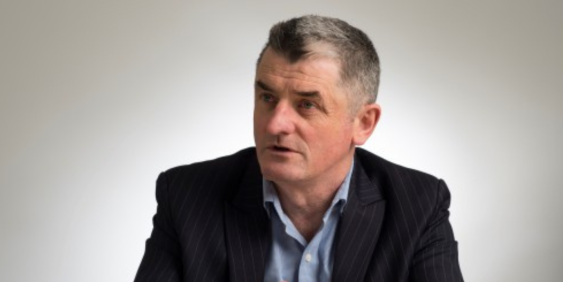Boardroom Premium


Wellington-based independent director Kevin Jenkins CMInstD has a lot on his plate – cheese included.
With governance expertise across startups and long-established companies, Kevin spends much of his time in Auckland and currently sits on five boards: Harrison Grierson (which turns 140 next year), Parliamentary Education Trust, and he’s the chair of the Real Estate Institute of NZ, The Cheese Wheel, and Iti Kōpara Trust. He also sits on several risk and assurance committees.
This week, Kevin shares a book about disruption, the rise of social media – and the desperate need for traffic – in a topical, journalistic jaunt, full of colourful characters and governance horror stories.
Traffic – Genius, Rivalry and Delusion in the Billion-Dollar Race to go Viral by Ben Smith.
I’d describe it as reflective but rollicking journalism, which is no surprise given the author is a former media columnist for the New York Times, the founder/editor of BuzzFeed News, and has written for other outlets, including Politico.
I bought it last year when it was published because I like books about disruption. The rise of social media – driven by the hunt for ‘traffic’ (engagement) – is a classic story of disruption. I read it this year, which was timely given the disruption it describes is playing out now with Newshub, TVNZ, and NZ media generally.
It’s a good yarn with a cast of driven, eccentric characters, some of whom are geniuses, and some of whom are, um, not the kind of people you would want to share a beer with.
It includes horror stories about governance. One in particular describes BuzzFeed board meetings: “(executives) would sit around the table…and (the CEO) would talk for a while, and then (the chair) would say ‘I have no idea what you’re doing’ and they’d all leave cheerfully”.
I’d add that we are rightly concerned about the future of news and the echo chambers of social media, but there are other perspectives. Stop Reading the News by Rolf Dobelli is a guide to stepping aside from the instant news cycle and reading what matters, and The News: A User’s Manual by Alain de Botton analyses why certain types of stories dominate the news, again with the aim of suggesting we refocus on what really matters. Both are well worth reading for your sanity.
My go-to book about strategy is Playing To Win by AG Lafley and Roger L Martin. It has a lot of good guidance, but the key reminder is that strategy is all about choices. You can’t do everything, and you won’t progress if you don’t take risks.
Some aspects of governance are probably immutable (Four Pillars?), but otherwise we need to invest in ourselves so that we stay abreast of important trends and especially, so we bring something fresh to the board table.
Also, there’s no business without customers, and I think we can learn as much about human behaviour from novels as we can from the latest behavioural economics or leadership book, so reading widely is important.
Traffic – Genius, Rivalry and Delusion in the Billion-Dollar Race to go Viral isn’t the first book I’d recommend for a governor, but ultimately, it's about engaging with customers in a digital age with a subtext of how this can go feral if there aren’t adults in the room.
If directors are attuned to a need for fast-paced experimenting and exponential growth to stay competitive, balanced with good governance, they can be those adults. There’s a funny/scary statement about the board of BuzzFeed facing a continued inability to return a consistent profit: “(the) board – once happy to leave occasional meetings half comprehending (the CEO’s) futurist predictions – was getting restless”.
I wrote about the challenge of governing a company that is moving at pace in an article last year, ‘Governing at pace’, which also features in a podcast episode of Board Matters.
I read books about music –. Don’t Tell Anyone The Secrets I Told You by Lucinda Williams is a goodie. On the sport front, Billy Wallace: A True Rugby Legend by Denis Dwyer is that rare thing – a compelling history-based rugby biography.
I’ve been reading novels lately and I’m on a bender of recent Australian novels written by younger writers such as Stephanie Bishop, Ronnie Scott, Peter Polites, Madeline Gray, Diana Reid, Jock Serong, Andre Dao and Max Easton. Most are identifiably of today – the settings in Brisbane, Sydney and Melbourne, with references to today’s music, rugby league, foodie culture, #MeToo, migrants finding their place, and the cultural mores of social media.
I recently completed the new IoD Climate Change Governance Essentials course, which was excellent, so responding to climate change is top of mind for me right now. The other issue is productivity.
Vincent Pooch described the challenge well in his What I’m Reading segment when he says: “Only by lifting the productivity of our capital, labour and land can we grow the pie to pay for a better life for our grandchildren. As directors, how do we best lead these conversations?”
More reinforced than surprised, but that it’s important to work hard at ‘adding value’.
I’d like to see directors integrating conversation and debate about risk into wider discussions, rather than only as a standalone topic. Risk is the flipside of strategy, and all of the choices we make change our risk profile.